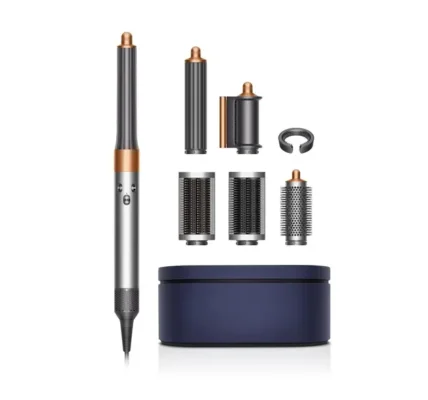Dealing with hair loss can be challenging and impact your confidence significantly. Understanding effective hair loss treatments is essential for those looking to restore their hair and boost their self-esteem. This article will explore various treatment options including natural remedies, over-the-counter solutions, and surgical interventions. By identifying the cause of your hair loss and selecting the appropriate treatment, you can take the first step towards healthier hair.
Understanding the Causes of Hair Loss
Hair loss can be a frustrating experience that affects many people. It’s essential to comprehend the potential causes to address it effectively. One common reason is genetics. If your family members have experienced hair loss, you might be prone to it as well.
Another leading cause is hormonal changes. Conditions such as pregnancy, menopause, or thyroid problems can result in hair thinning. Additionally, medical conditions like alopecia areata, scalp infections, and autoimmune diseases can lead to significant hair loss.
It’s also important to consider the impact of medications. Certain drugs used for cancer, arthritis, depression, heart problems, and high blood pressure have side effects that include hair loss. Even emotional or physical stress can prompt a temporary hair loss condition called telogen effluvium.
Lastly, nutritional deficiencies and poor dietary habits can weaken hair strands and lead to loss. A lack of essential vitamins and minerals, such as iron, protein, and vitamin D, might contribute to hair shedding.
Natural Remedies for Hair Restoration
Natural remedies offer a holistic approach to hair restoration. Incorporating these remedies can help you avoid harsh chemicals and expensive treatments.
Aloe Vera: Apply aloe vera gel directly to the scalp to reduce dandruff and unblock hair follicles that may be blocked by excess oil.
Coconut Oil: Rich in fatty acids, coconut oil penetrates the hair shaft, reducing protein loss and improving overall hair health when used as a pre-wash treatment.
Onion Juice: With high sulfur content, onion juice helps improve blood circulation to the hair follicles, promoting hair growth when applied regularly.
Rosemary Oil: Known for its ability to improve cellular generation, rosemary oil can enhance hair thickness when massaged into the scalp weekly.
Massage: Regular scalp massages can stimulate the scalp and improve hair thickness. Use essential oils like lavender or peppermint for enhanced benefits.
These natural remedies, along with a balanced diet and proper hair care practices, can contribute to healthier, fuller hair over time.
Popular Over-the-Counter Treatments
For individuals seeking non-prescription solutions, several over-the-counter treatments can effectively combat hair loss.
Minoxidil
Is one such product, commonly found as a topical solution or foam. It extends the growth phase of hair follicles, promoting thicker hair. Available in different concentrations, it’s suitable for men and women.
Another option is biotin supplements, essential for maintaining healthy hair. Though primarily designed for those with biotin deficiency, they can complement other treatments to enhance results. Combining biotin with a balanced diet rich in vitamins and minerals can improve overall hair health.
Topical scalp treatments like caffeine-infused shampoos and conditioners are also popular. Caffeine is known to stimulate hair follicles and increase blood circulation, aiding in hair growth. These products should be used regularly for optimal outcomes.
Lastly, essential oils such as rosemary and lavender are often used to treat hair loss. They can be mixed with carrier oils and applied to the scalp, enhancing blood flow and promoting hair growth. Careful, consistent use can deliver noticeable improvements.
Prescription Solutions: What to Expect
When it comes to prescription solutions for hair loss, there are several options that individuals can explore under the guidance of a healthcare professional. These medications are often recommended for those who have not seen results from over-the-counter treatments or natural remedies.
One of the most commonly prescribed medications is
Finasteride
This oral medication works by blocking the production of the hormone DHT, which is responsible for hair follicle shrinkage. It has been shown to be effective in slowing down hair loss and, in some cases, even promoting regrowth.
Another option is
Minoxidil
Which is available in both prescription and over-the-counter forms. When prescribed, minoxidil solutions are usually stronger and may provide better results. This topical treatment increases blood flow to the hair follicles, encouraging hair growth.
Another prescribed treatment involves
Corticosteroids
Especially for people experiencing hair loss due to autoimmune conditions like alopecia areata. These can be administered through injections, topical creams, or oral pills and work by reducing inflammation and suppressing the immune system’s attack on hair follicles.
It is important to discuss the potential side effects of these medications with your healthcare provider. Common side effects may include scalp irritation in the case of topical treatments, and hormonal changes or sexual dysfunction with oral medications like finasteride. Regular check-ups and monitoring are often required to manage any adverse effects effectively.
For those experiencing significant distress due to hair loss, prescription solutions can be a vital part of a comprehensive treatment plan. Consultation with a dermatologist or a healthcare provider is essential for personalized advice and the best possible outcomes.
Surgical Options for Hair Loss
When considering surgical options for hair loss, it’s important to understand the variety of techniques available. Hair transplant surgery typically involves moving hair follicles from a denser area of your scalp to the thinning or balding regions. Two popular methods of hair transplant surgery are Follicular Unit Transplantation (FUT) and Follicular Unit Extraction (FUE).
In Follicular Unit Transplantation (FUT), a strip of scalp is removed from the back of the head, and individual follicular units are harvested and transplanted to the balding areas. This method can leave a linear scar but generally provides a higher number of grafts in one session.
Follicular Unit Extraction (FUE) is a less invasive procedure where individual hair follicles are extracted directly from the scalp and implanted into the bald areas. FUE offers the advantage of minimal scarring and quicker recovery times, making it a popular choice among many patients.
Another option is scalp reduction surgery, which involves the removal of bald scalp areas followed by stretching the remaining scalp areas with hair to cover the bald spots. This procedure is less common today but may be an option for certain individuals.
For those looking for a non-transplant surgical option, Scalp Micropigmentation (SMP) can be considered. This technique involves tattooing tiny, hair-like dots onto the scalp to give the illusion of fuller hair and is particularly effective for those who prefer a shaved or short-haired look.
The choice of surgical intervention depends on individual factors such as the extent of baldness, quality and quantity of donor hair, and personal preferences. Consulting with a qualified surgeon can help determine the best approach for achieving natural-looking results and regaining confidence.
Lifestyle Changes to Promote Healthy Hair Growth
Maintaining healthy hair growth begins with proper nutrition. Consuming a balanced diet rich in vitamins and minerals can positively impact hair follicles and overall hair health. Essential nutrients like biotin, vitamin E, zinc, and iron should be included in daily meals. Foods like eggs, nuts, seeds, and green leafy vegetables are excellent sources.
Regular scalp massage can also promote healthy hair growth. Massaging the scalp increases blood circulation, which can stimulate hair follicles and encourage growth. Using essential oils, such as rosemary or lavender, mixed with a carrier oil can enhance the effects of the massage.
Reducing stress is crucial for hair health. High stress levels can lead to hair loss and thinning by affecting hormone levels. Engage in activities like yoga, meditation, and regular exercise to manage stress effectively. These practices not only benefit your mental health but also support your hair growth.
Avoiding heat and chemical damage
Is essential for maintaining strong hair. Frequent use of blow dryers, straighteners, and chemical treatments can weaken hair strands. Opt for air drying and use heat styling tools sparingly. When necessary, apply heat protectant sprays to minimize damage.
Maintaining a healthy lifestyle
Goes beyond diet and stress management. Ensuring you get enough sleep and staying hydrated are vital for overall health, including hair vitality. Aim for at least 7-8 hours of sleep per night and drink plenty of water throughout the day.
Lastly, adopting good hair care practices can make a significant difference. Use sulfate-free shampoos, avoid excessive brushing, and be gentle when detangling hair to prevent breakage. Regular trims help to get rid of split ends, keeping hair looking healthy and allowing it to grow.


